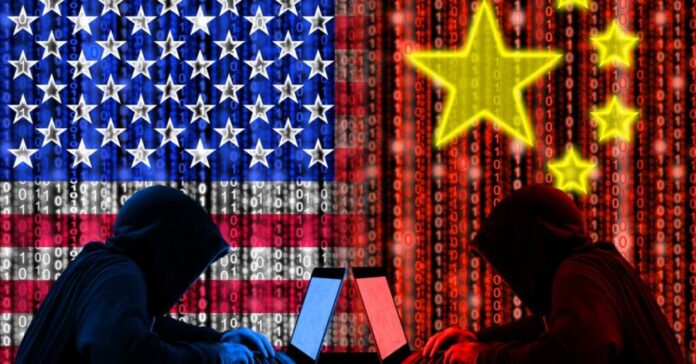
The revelations of China’s extensive disinformation campaign during Taiwan’s recent national elections serve as a compelling harbinger for the potential challenges awaiting the United States in its own electoral process in November.
According to Taiwanese officials and non-governmental organizations (NGOs) briefing reporters at the National Press Club, Chinese actors allegedly employed various tactics, including the use of generative artificial intelligence (A.I.) to manipulate videos. These tactics aimed to sow discord in Taiwan, even distorting the words of at least one U.S. member of Congress.
These tactics employed by Chinese actors offer a glimpse into the sophisticated strategies that could be deployed on a larger scale during the 2024 U.S. elections. The focus on sowing discord, undermining trust in democratic institutions, and fostering skepticism towards the U.S. government parallels the types of narratives that could be amplified to disrupt the electoral process in America.
The disinformation narratives in Taiwan predominantly targeted the U.S., falsely accusing Washington of constructing biological labs in Taiwan and inciting conflicts such as the Israel-Palestine conflict. These narratives shed light on China’s potential strategies to influence public opinion during the upcoming U.S. presidential elections.
Some of the narratives by Chinese actors depict the U.S. as a disloyal ally that will forsake Taiwan, criticize Washington’s democratic values, and attribute global chaos to Americans while portraying Beijing as a beacon of stability and virtue.
The extensive efforts by Chinese entities to fortify a pro-Beijing worldview and exploit existing societal divisions highlight some potential vulnerabilities within the U.S. that could be exploited in 2024. One primary example is the Israel-Hamas conflict.
The parallels between China’s tactics in Taiwan and those in the U.S. raise concerns, as highlighted in a recent report by Microsoft on Beijing’s disinformation campaigns. This report revealed that Chinese actors, including entities like “Spamouflage” and “Gingham Typhoon,” have been active in spreading propaganda and experimenting with new media techniques, potentially enhancing their ability to influence elections in the future.
The dissemination of disinformation on popular social media platforms, such as TikTok, underscores the pervasive nature of these influence operations and the challenges in combating them effectively.
This means that the foreign interference that could occur during the 2024 U.S. elections could be much more insidious and challenging to detect than before. The warning serves as a reminder to safeguard the electoral process. Russel Hsiao, executive director of the Global Taiwan Institute, emphasized the importance of robust public-private partnerships to counter China’s efforts to undermine the U.S. credibility in Taiwan and other nations.
The dissemination of disinformation in Taiwan extended to popular platforms like TikTok, sparking debates over national security concerns in the U.S. Meanwhile, analysts warn of China’s escalating efforts to influence the upcoming U.S. elections, intensifying their AI-driven disinformation campaigns.
As tensions between the U.S. and China persist, Taiwan’s recent election results have underscored the island’s preference for closer ties with the U.S. Despite China’s extensive disinformation efforts, voters remained largely unaffected, signaling resilience against foreign propaganda. Nonetheless, the scope and sophistication of China’s disinformation campaign, amplified by A.I., pose ongoing challenges for verification and countermeasures.
Furthermore, the success of Taiwan’s countermeasures against disinformation, such as data collection and local-level focus group discussions, underscores the importance of proactive efforts to safeguard the integrity of the electoral process. It’s important to remain vigilant and adaptable against evolving threats of foreign interference in the U.S. electoral process.
Policymakers, electoral authorities, and civil society actors must take proactive steps to address the multifaceted challenge of foreign interference. This involves improving the security and resilience of electoral systems, addressing root causes of interference, and enhancing cooperation between relevant actors.
By taking a multifaceted approach and remaining proactive, stakeholders can protect the rights of citizens and the integrity of democratic institutions. By drawing lessons from Taiwan’s experience and implementing robust measures to detect, deter, and counter disinformation campaigns, the U.S. can mitigate the risks posed by foreign actors and safeguard the integrity of its democratic institutions in the upcoming 2024 elections.














